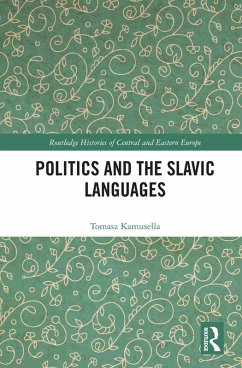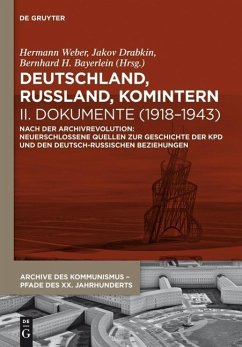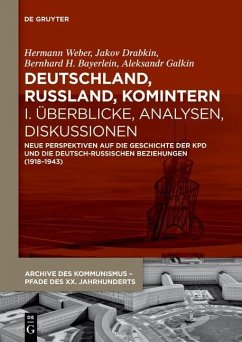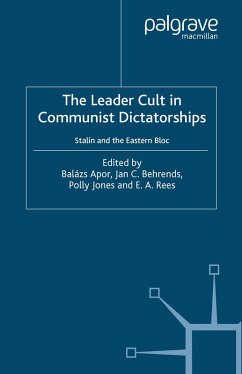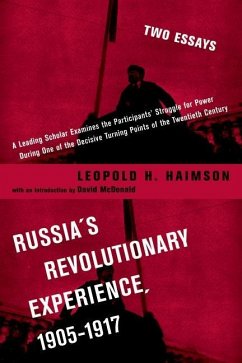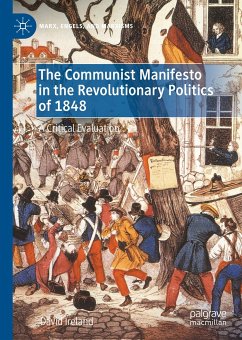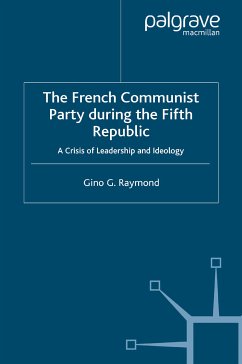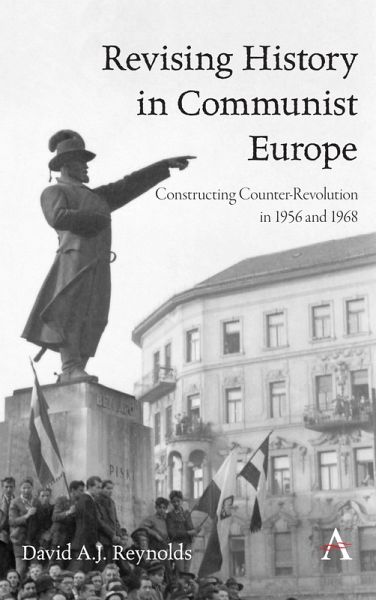
Revising History in Communist Europe (eBook, PDF)
Constructing Counter-Revolution in 1956 and 1968
Versandkostenfrei!
Sofort per Download lieferbar
29,95 €
inkl. MwSt.
Weitere Ausgaben:

PAYBACK Punkte
15 °P sammeln!
The context of both the 1956 Hungarian uprising and the Prague Spring was the torturous process of communist regimes tentatively revising the history of the recent communist past that had been constructed and imposed during the Stalinist period. This process of remembering and forgetting had the power to shake the legitimacy and authority of communist party-states because their monopoly on the interpretation of the past was so central to their control of the present.Once the elaborate histories of the show trials and subsequent propaganda were undermined, the whole credibility of the regimes t...
The context of both the 1956 Hungarian uprising and the Prague Spring was the torturous process of communist regimes tentatively revising the history of the recent communist past that had been constructed and imposed during the Stalinist period. This process of remembering and forgetting had the power to shake the legitimacy and authority of communist party-states because their monopoly on the interpretation of the past was so central to their control of the present.
Once the elaborate histories of the show trials and subsequent propaganda were undermined, the whole credibility of the regimes that had propagated them was likewise weakened. In the Prague Spring, this long-delayed historiographical reckoning was joined by an equally problematic connection between meanings of the past and definitions of the present. Czechoslovakia's communist allies insisted on understanding and seeking to influence the Czechoslovak reform process through varied and changeable references to and analogies from Hungary's 1956 uprising. The purpose and nature of these loaded linkages between recent Hungarian past and Czechoslovak present changed according to circumstances and developments.
While the meanings of the 1956 uprising and the concomitant definitions of the 1968 Prague Spring also varied between Soviet and Hungarian analysts, they were alike resisted by Czechoslovak reformers seeking to chart a unique path to socialism. As they attempted to ground their policies in Czechoslovak history, they unsuccessfully rejected parallels with Hungary's. Ultimately, however, the dependence on historical analogies to decisively explain the present was also a vulnerability for those who employed them, as the gap between a constructed past and an untidy reality irresistibly emerged.
Once the elaborate histories of the show trials and subsequent propaganda were undermined, the whole credibility of the regimes that had propagated them was likewise weakened. In the Prague Spring, this long-delayed historiographical reckoning was joined by an equally problematic connection between meanings of the past and definitions of the present. Czechoslovakia's communist allies insisted on understanding and seeking to influence the Czechoslovak reform process through varied and changeable references to and analogies from Hungary's 1956 uprising. The purpose and nature of these loaded linkages between recent Hungarian past and Czechoslovak present changed according to circumstances and developments.
While the meanings of the 1956 uprising and the concomitant definitions of the 1968 Prague Spring also varied between Soviet and Hungarian analysts, they were alike resisted by Czechoslovak reformers seeking to chart a unique path to socialism. As they attempted to ground their policies in Czechoslovak history, they unsuccessfully rejected parallels with Hungary's. Ultimately, however, the dependence on historical analogies to decisively explain the present was also a vulnerability for those who employed them, as the gap between a constructed past and an untidy reality irresistibly emerged.
Dieser Download kann aus rechtlichen Gründen nur mit Rechnungsadresse in A, D ausgeliefert werden.




